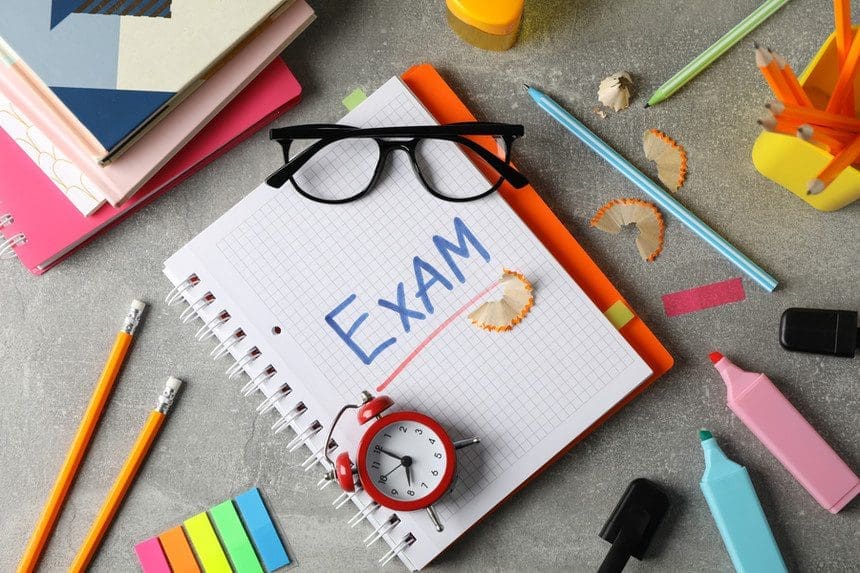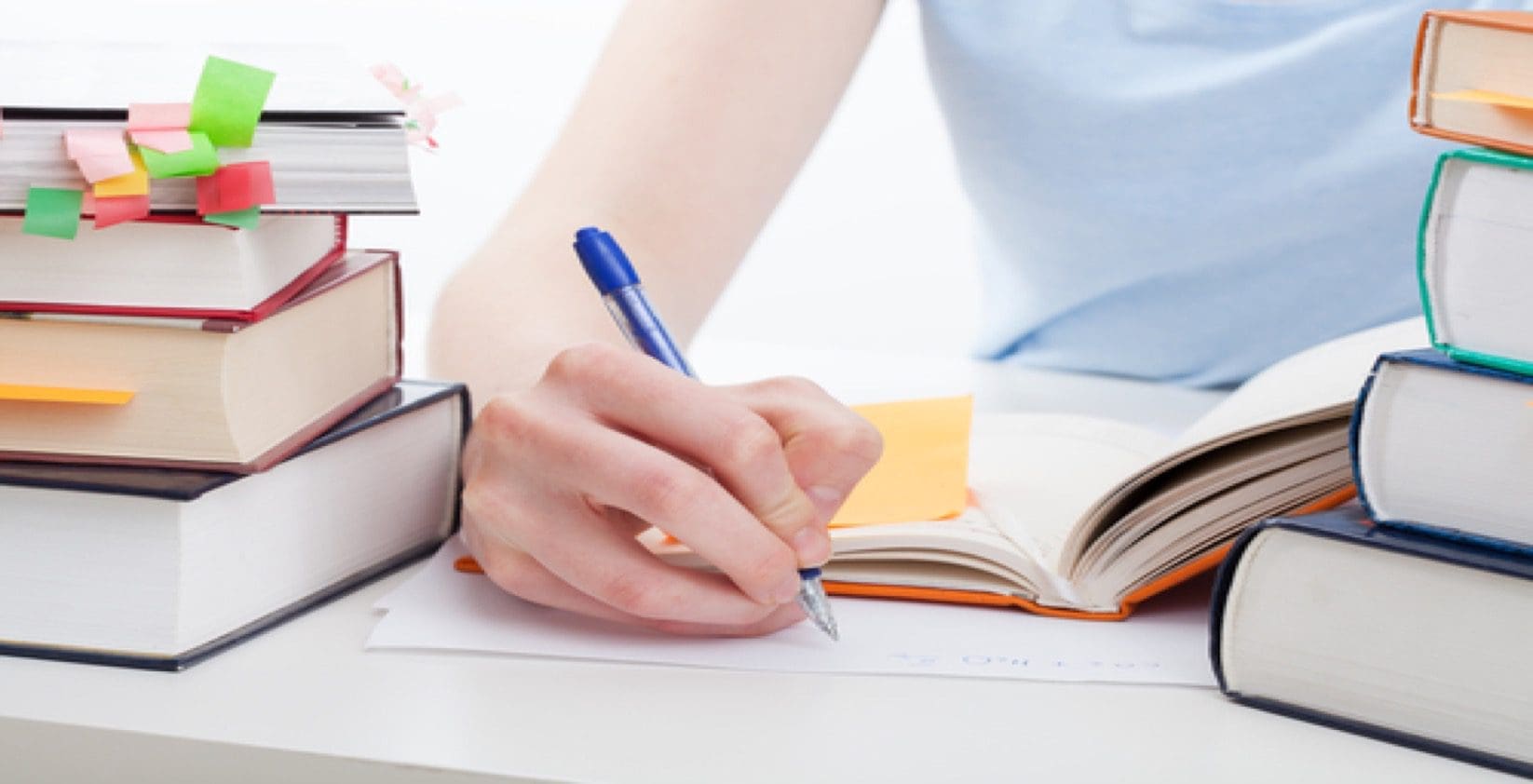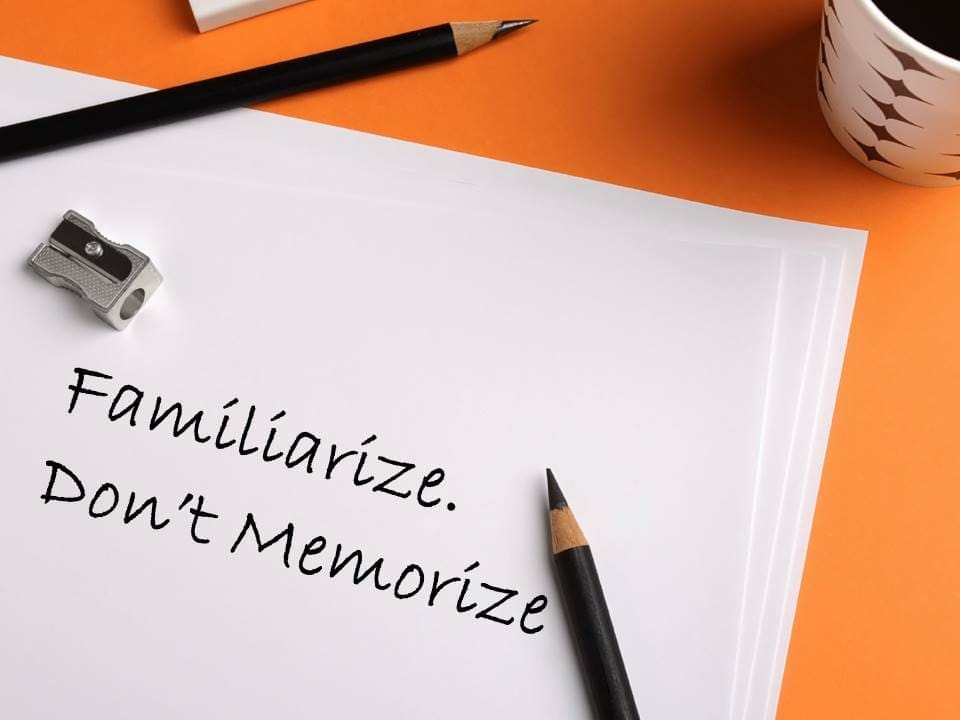
No matter how old we get, there will always be this one constant in our life, taunting us. Exams. Yep, the same ol’ studies and anxiety, and another bout of studies and anxiety until this becomes a vicious cycle of life. And there are times where no matter how hard we study, the results are just not satisfactory! And there are times where we just go like, “Bro, exam is just a sheet of paper, and one sheet can’t define my life.”
For those who are struggling, and for those who are not struggling, the key is not hard work, my friend, the key is smart work.
So, here are ten tricks that will help us in getting a better score in our exams.

Pay attention to the class, not the recordings.
Yeah, I know how that sounds, and trust me, it’s going to be pretty difficult at first for those who have the habit of relying on recordings or just notes. But, paying attention to the class actually helps in better retention, and better remembrance without even the need to memorize the lesson. Focusing on the class helps in keeping an active mind, using the five major sensory organs to grasp the lessons that are being taught. When one hears the lecture, one also listens to it, understanding it and putting one’s own thoughts along with what is being taught.
But the same doesn’t happen during a recording. With the added benefit of the play/pause technology, a student can’t help but wander away; pays divided attention and becomes passive listeners, only relying on what is being said and not putting their own thoughts in it. Thus, the remembrance automatically becomes ephemeral. Also, it’s not good to rely that much on the recordings, is it? What would happen once the offline classes resume?
Make footnotes during the class.
This is an age-old technique used by people generation after generations. Footnotes. Do you know what? I am pretty sure even Einstein used to have footnotes.
Anyways, writing down short handed notes and important keywords from the lecture in a class actually helps in retaining and understanding the subject a lot better. That being said, making notes doesn’t mean writing down full fledged sentences of whatever the teacher is saying. Make sure not to lose focus from the lecture in order to make notes. Notes are what make a student understand the concept, it doesn’t need to be fancy.
You can even write in codes, if it helps you! As long as you understand your notes, that’s all that matters.

Give a read-over to your made notes after the class is over.
The common mistake that most of the students make is close the copy immediately once the lecture gets over. And there goes the notes, and the entire memory of the lecture out of the window. Giving a go-through over the notes even for ten seconds helps in solidifying the facts and the lessons in our mind. Studies show that a brain can remember over 2.5 Petabytes, i.e, 25,00,000 Gigabytes worth of information but over 90% of the information gets stored in our subconscious rather than the conscious mind.
Reading the notes just once after the class, helps in lodging the information somewhere in the conscious mind so that we can remember it easily even if we don’t study the night before the exam. See? It’s really less work than one expects. Just a matter of ten seconds.
Don’t cram up your studies.
While our long term memory seems limitless, the short-term memory of our brain has a much smaller capacity. According to research, we can only remember 5-9 pieces of information at a given time. The limit in short-term memory is why ‘cramming’ information the night before exams doesn’t work that well. There will be an information overload and thus everything will be a jumbled mess in our minds.
This is also the reason why longer study sessions are of no use. Students who are studying five or six hours non-stop, just stop. This doesn’t help, in fact this is the reason why everything seems confusing in the exam hall. Learn to take breaks, and space out your study planning.
One to two hours of studying at a time is ideal to remember lessons and topics more easily than overworking yourself. Take optimum breaks, listen to music, take a nap, most importantly do not drive yourself to the ground.

Make up relatable/ funny/ practical parallels in your mind.
‘John Jonah Jameson – JJJ has this personal vendetta against Spider-man which he uses to report in his Daily Bugle!’ —- Waaaait…. Is this an example of Bias journalism? A concept that was hard to understand in the class?
Yep. It always, always, helps to connect your studies with the funniest, most relatable incident or example or pop-culture reference in your life. Sherlock would call it the mind-castle.
Don’t understand a concept? Break it down, simplify every word and try to associate it with a practical example or something amusing in your mind.
This is almost like the game in Harry Potter. Remember? Boggart? Thinking of amusing things while facing the shape-shifting fearful dark magic? Yep, that’s it.
Be with your peers.
So, the thing is ‘avoiding peer-pressure’ doesn’t help that much, it just increases anxiety. On the other hand, being with your peers is exactly what you need before exams. In fact, a little bit of peer pressure acts as a motivator for the students lagging behind. When you study in groups, doubts are exchanged, several angles are explored. The students having difficulty, understand it better if explained by someone who is of the same level.
And the students who already have understood, explaining the same is a very good opportunity to revise the things already studied. It’s a win-win.

Please don’t memorize.
Memorizing stuff only messes with your brain and jumbles up concepts in the exam hall. Every student is nervous during the exam, and it is more likely to forget memorized lines and topics very easily than forgetting understood references. Once you understand your chapters, there is no need for you to study at all. It’s that simple.
Understanding is the key. Not memorizing. Rote learning can also decrease your scores as it lowers the impression of the teacher correcting the copy.

Try to insert as many diagrams/ flowcharts/ examples as possible.
Writing an answer is not enough. A simple answer is just a skeleton. The add-ons are the flesh and muscles required to shape the concept. Providing flow-charts, diagrams, and examples improves the quality of the answer manifold. Make sure to provide the diagrams in between your answer rather than the beginning or the end. Always label your diagrams and caption them.
It’s not the definition that matters, but the application of the definition. Answering means to show that you actually understand the question asked and know what you are writing. Your answer should show the confidence that you are feeling (or not).
Use connecter words like ‘thus’, ‘therefore’, ‘hence, it seems’ to link one argument with another, helping to have a steady flow in the answer. Try to structure your answer before writing it down. Try to include an introduction and conclusion to every answer. But also, try not to drag either. The attention span of humans is only about a few seconds. So make sure to catch the teacher’s interest in your answer in time. It definitely enhances your paper.
Break your answers in paragraphs, and not in bullet points.
The way an answer is written matters a lot. Writing an answer in a block of a single paragraph often hurts the eyes and makes the content boring. Breaking the answer down into paragraphs allows the checker to read an answer more freely and with more interest. Sometimes, the presentation of an answer matters more than the content itself. So, try to build separate paragraphs for every point.
Write your examples in separate paragraphs to make them more emphasized, avoid using Capitals as much as possible since it screams attention. Capitalizing an entire word might indirectly signalize to the copy checker that only the capitals are important in that answer instead of the entire answer. This can be a low blow.
Avoid writing bullet points. That definitely diminishes the quality of answers.
Try to have a calm mind and be confident.
The last point to keep in mind is to relax. Having exam anxiety is common and totally fine, but try to calm it down through various breathing exercises. Keeping a calm, empty mind is very important to write an exam.
An unknown question can be made up, but make sure to use confident words in the exam and avoid repetitive words or sentences in answers. Have an optimistic mind and everything will go swimmingly.

Everyone has unique minds and unique study techniques. By the end of the day, it’s your mind and your paper. So, no matter the tricks, trust yourself to give a good exam. Creativity and logic – and you will rock!



Be the first to comment